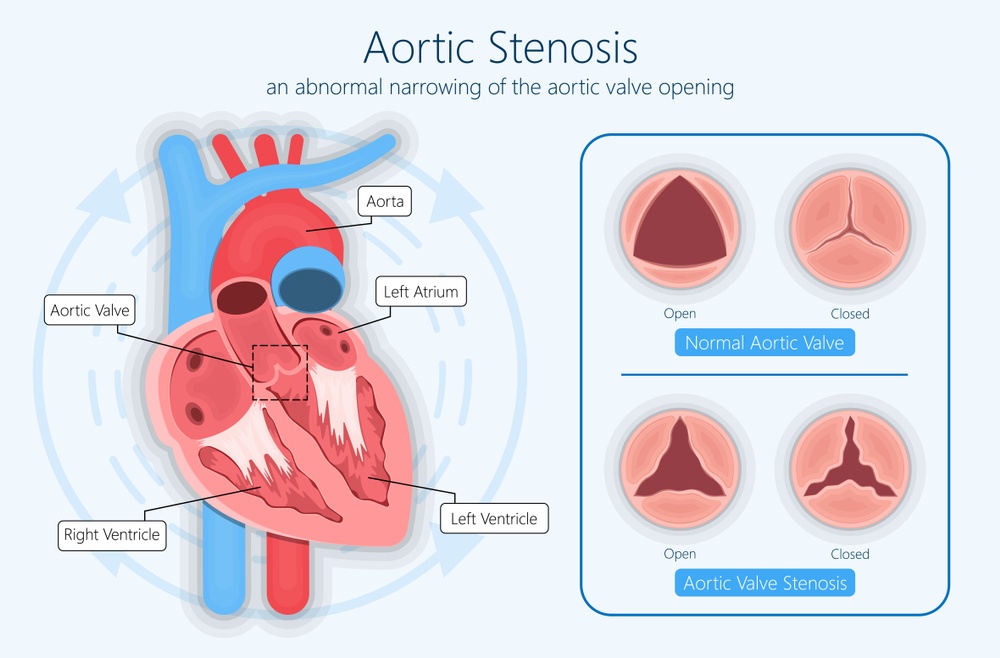Aortic surgery refers to surgical procedures involving the aorta, the largest artery in the human body that carries oxygenated blood from the heart to the rest of the body. Aortic surgery is a complex and delicate procedure, typically performed by cardiovascular or cardiothoracic surgeons.
Let us discuss about the signs of aortic surgery. Aortic valve treatment may be necessary to repair or treat conditions affecting the aorta, which can include:
Aortic Aneurysm Repair - An aortic aneurysm is a bulge or swelling in the aortic wall, which can be life-threatening if it ruptures. Aneurysm repair involves either open surgery or endovascular surgery, depending on the location and size of the aneurysm.
Open Surgery - Involves making a large incision in the chest or abdomen to access and repair the weakened area of the aorta.
Endovascular Surgery (Endovascular Aneurysm Repair - EVAR) - A less invasive procedure where a stent graft is inserted through small incisions in the groin and advanced to the site of the aneurysm to reinforce the weakened aortic wall.
Aortic Dissection Repair - Aortic dissection occurs when there is a tear in the inner layer of the aortic wall, leading to the formation of a false channel for blood flow. Surgery is required to repair the tear and prevent further complications.
Aortic Valve Replacement - The aortic valve, located between the left ventricle of the heart and the aorta, can become diseased or damaged. In such cases, aortic valve replacement surgery may be performed, where the damaged valve is replaced with a mechanical or biological prosthetic valve.
Aortic Root Surgery - This involves surgical procedures on the aortic root, which is the area where the aortic valve attaches to the aorta. Conditions like aortic root aneurysms or aortic root dilation may require surgery to repair or replace the affected portion.
Aortic Arch Surgery - Surgical procedures involving the aortic arch, which is the curved part of the aorta that gives rise to the branches supplying blood to the head, neck, and arms.
Benefits of aortic surgery:
Some of the key benefits of aortic surgery include:
- Aortic surgery is often necessary to treat life-threatening conditions such as aortic aneurysms at risk of rupture or aortic dissections with the potential for catastrophic complications. Surgery can save lives by repairing or replacing the damaged portion of the aorta.
- Aortic aneurysms and dissections can lead to life-threatening bleeding or sudden cardiovascular collapse. Surgical repair can prevent these life-threatening events by reinforcing the weakened aortic wall or removing the affected segment.
- Aortic valve surgery, such as valve replacement or repair, can significantly improve the patient's quality of life by restoring normal blood flow, alleviating symptoms like chest pain, shortness of breath, and fatigue, and improving overall heart function.
- Repairing aortic conditions through surgery can reduce the risk of complications associated with untreated or poorly managed aortic diseases, such as stroke, organ malperfusion, and heart failure.
- Advancements in endovascular procedures, such as EVAR and TEVAR, have made aortic surgery less invasive. These procedures often result in smaller incisions, less pain, shorter hospital stays, and quicker recovery times compared to traditional open surgeries.
- In some cases of aortic root aneurysms or valve diseases, valve-sparing procedures can preserve the patient's native aortic valve, avoiding the need for mechanical or biological valve replacement and reducing the risk of long-term complications.
- Successful aortic surgery can lead to improved long-term outcomes and a reduced risk of future complications, allowing patients to lead a healthier and more active life.
- Aortic root surgery is often the primary treatment for congenital heart conditions, such as aortic coarctation, helping to improve blood flow and long-term cardiovascular health.
- Surgery can restore normal blood flow in cases of aortic obstruction, improving oxygen delivery to organs and tissues and reducing the workload on the heart.
Closing thoughts:
Patients need to work closely with their Aortic Valve Replacement Surgeons to understand their specific condition, discuss treatment options, aortic valve replacement cost and make informed decisions about aortic surgery.
Sri Ramakrishna Hospital is the best hospital for aortic root surgery in Coimbatore providing aortic valve treatment with best-in-class infrastructure & highly experienced cardiovascular specialists.


No comments yet